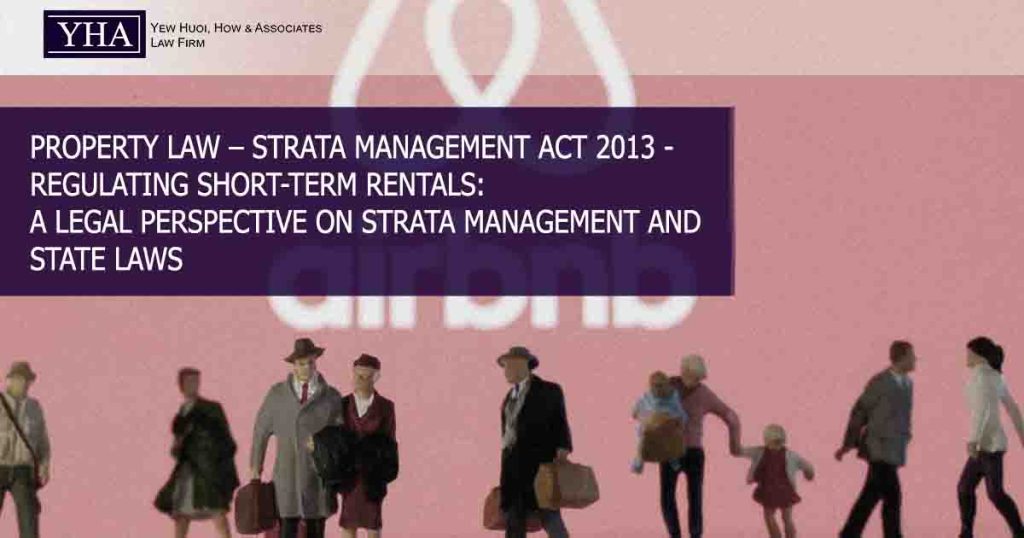ILLUSTRATIVE SCENARIO
The Management Corporation of “Happy Suites”, established under the Strata Titles Act 1985, manages a development designated for commercial use as service apartments by state authority’s mandate as per section 120 of the National Land Code 1965 (“NLC 1965”). Subsequently, during an Extraordinary General Meeting, a special resolution was adopted introducing a “House Rule” that restricts the use of units exclusively to service suites, prohibiting business activities, short-term rentals or other uses that could potentially damage the reputation of Happy Suites. Despite this, X has continued to use his units for commercial short-term rentals.
Legal Principles & Law:
• The Extraordinary General Meeting was held under the Strata Management Act 2013 (“SMA 2013”). The SMA 2013 is recognized as social legislation to enhance strata community living. As such, the SMA 2013 calls for a liberal interpretation that prioritizes community well-being.
• The Federal Court in Malaysia prefers the approach of harmonisation of status and suggests that section 120 of the NLC 1965 and section 70 of the SMA 2013 should be read together harmoniously, indicating that rights granted by one law can be restricted by another for broader community benefits.
• As such, the Management Corporation has the authority to enact by-laws under Section 70 of the SMA 2013, addressing safety and security concerns. Such by-laws are deemed justifiable and lawful even if they impose restrictions beyond those set by the State Authority.
Reference Cases:
• Federal Court (Putrajaya) – Innab Salil & Ors v. Verve Suites Mont’ Kiara Management Corporation [2020] MLJU 1563; [2020] 12 MLJ 16
• Ang Ming Lee & Ors v. Mentari Kesejahteraan Bandar, Perumahan dan Kerajaan Tempatan & Anor and other appeals [2020] 1 MLJ 281
• Weng Lee Granite Quarry Sdn. Bhd. v. Majlis Perbandaran Seberang Perai [2020] 1 MLJ 211

